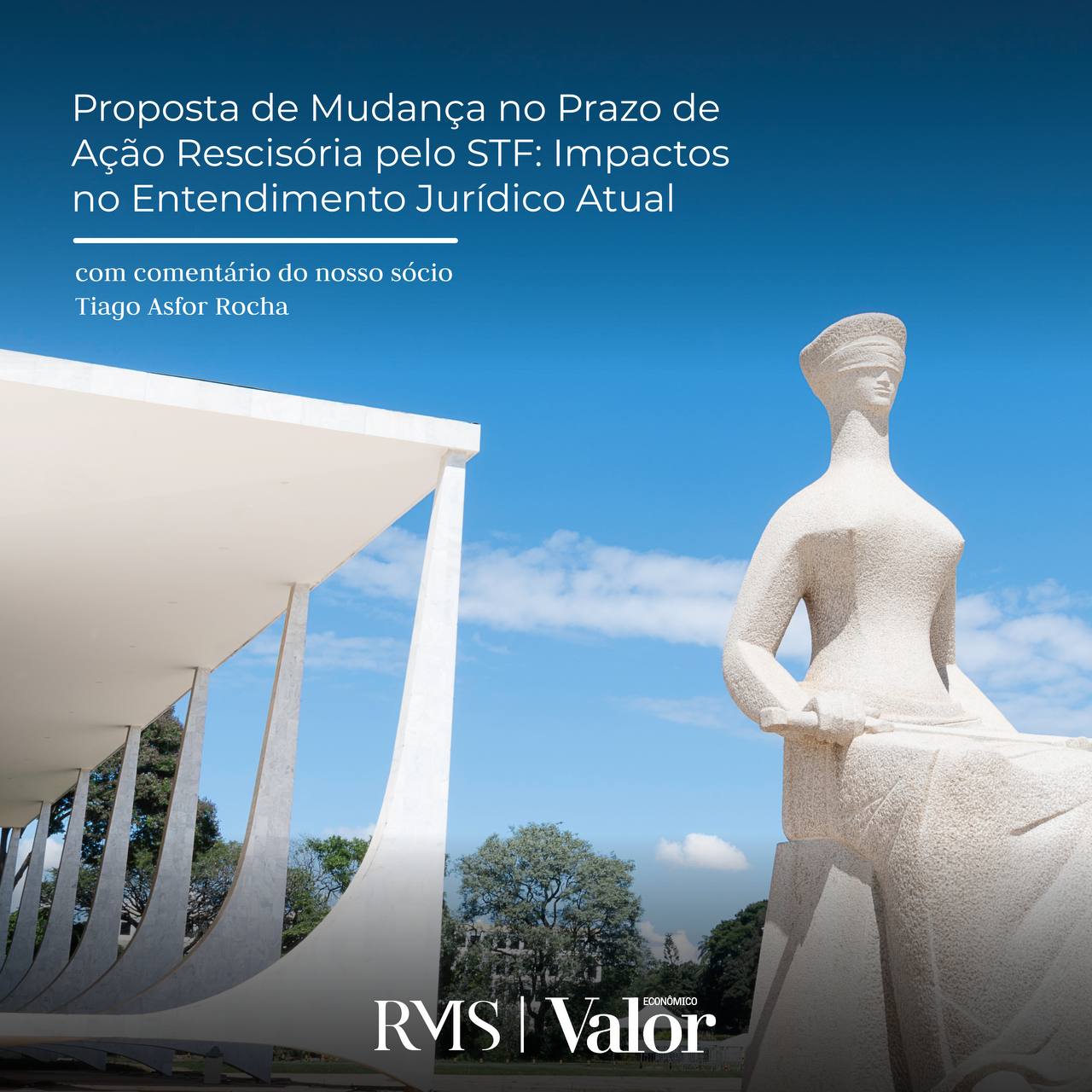
XIII Fórum de Lisboa: Sócio fundador do RMS Advogados, Anastacio Marinho, participou do evento de tema ”O mundo em transformação – Direito, Democracia e Sustentabilidade na Era Inteligente”.
Sorry, this entry is only available in PT.

Special Resource No. 1,851,329 / RJ
The Third Panel of the STJ, in the judgment of Special Appeal No. 1,851,329 / RJ, recognized the autonomous right of the lawyer to receive the succumbory fees, even though the participation of the legal professional in the agreement between the parties, nor the transit in judgment of the condemnatory sentence that set the honorary amount.
This is explained by the fact that article 24, of Law No. 8.906 / 1994 (Statute of Advocacy), according to the decision, allows for interpretative flexibility, due to the particularities observed in the specific case and the observance of the contractual good faith duty.
The specific case refers to an action of obligation to do, filed by a building condominium, to the detriment of a company, demanding the re-execution of specific services in the condominium’s facilities. The sentence of partial validity, in addition to converting the obligation to make losses and damages, sentenced the company to the payment of legal fees, fixed at 10% of the amount of the sentence. After the company filed an appeal, the parties entered into an agreement, in which the condominium was represented by new lawyers. The homologation request was made three days after the monocratic decision that upheld the conviction was passed.
The lawyers originally hired by the condominium requested the preservation of their interests with respect to the succumbence fees, defined in the condemnatory sentence. Such request was rejected by the agreement ratifying the agreement, in which it was expressly stated that it was not a hypothesis of succumbent fees, since the agreement was presented before the sentence became final.
Then, there was a judgment that upheld the appeal filed by the lawyers originally hired by the condominium, thus condemning the company to the payment of the succumbent fees set out in the sentence. In view of the fact that the company filed a special appeal, maintaining, among other arguments, that the condemnatory sentence was replaced by the homologating sentence of the agreement, with the consequence that the condemnation in succumbence fees will not continue.
The controversy concerns, therefore, namely “whether the sums of succession are due to the attorney who did not participate in the agreement signed between the parties, made and ratified before the final judgment of the sentence that fixed such amount”.
In the vote of the Rapporteur Minister Nancy Andrighi, it was reaffirmed that the interpretation of article 24, paragraph 4, of the Lawyer’s Statute “the agreement made by the attorney’s client and the other party, unless the professional acquiesces, does not affect his fees, either those agreed, whether granted by sentence “is that the agreement signed in these circumstances” does not attain the right to receive the attorney’s fees fixed in a final and unappealable judicial sentence “.
It was added that the aforementioned hypothesis admits “flexibilization of the normative interpretation”, due to the peculiarities of the specific case. This is because there was a fixation of the sum of money for a condemnatory sentence; filing an adhesive appeal signed by the lawyers originally hired; maintenance of the conviction sentence by monocratic decision; evidence of the zeal and competence in the work of the first lawyers; absence of provision in the transaction instrument regarding attorneys’ fees for the original lawyers who were acting in the case, or for the newly constituted lawyers.
The Rapporteur Minister resumed the precedent of REsp 1.819.956 / SP (12/10/2019), in which an understanding was established “due to the possibility that the law firm that sponsored the interests of the applicant in the course of the execution and had its mandate revoked before the ratification of the transaction signed between the parties without provision for an honorary amount, proceed with the execution of the fees that it deems due in the records of the executive order, and not necessarily in autonomous action ”.
Therefore, it was decided that although the sentence did not become final, the particularities of the specific case allow for more flexible normative interpretation, in order to recognize the autonomous right of lawyers originally hired by the condominium to receive the succumbence fees, established in condemnatory sentence, which should be considered a judicial enforcement order, in accordance with the provisions of articles 23 and 24, of the Advocacy Statute.
By: Wilson Sales Belchior

Sorry, this entry is only available in PT.

Sorry, this entry is only available in PT.